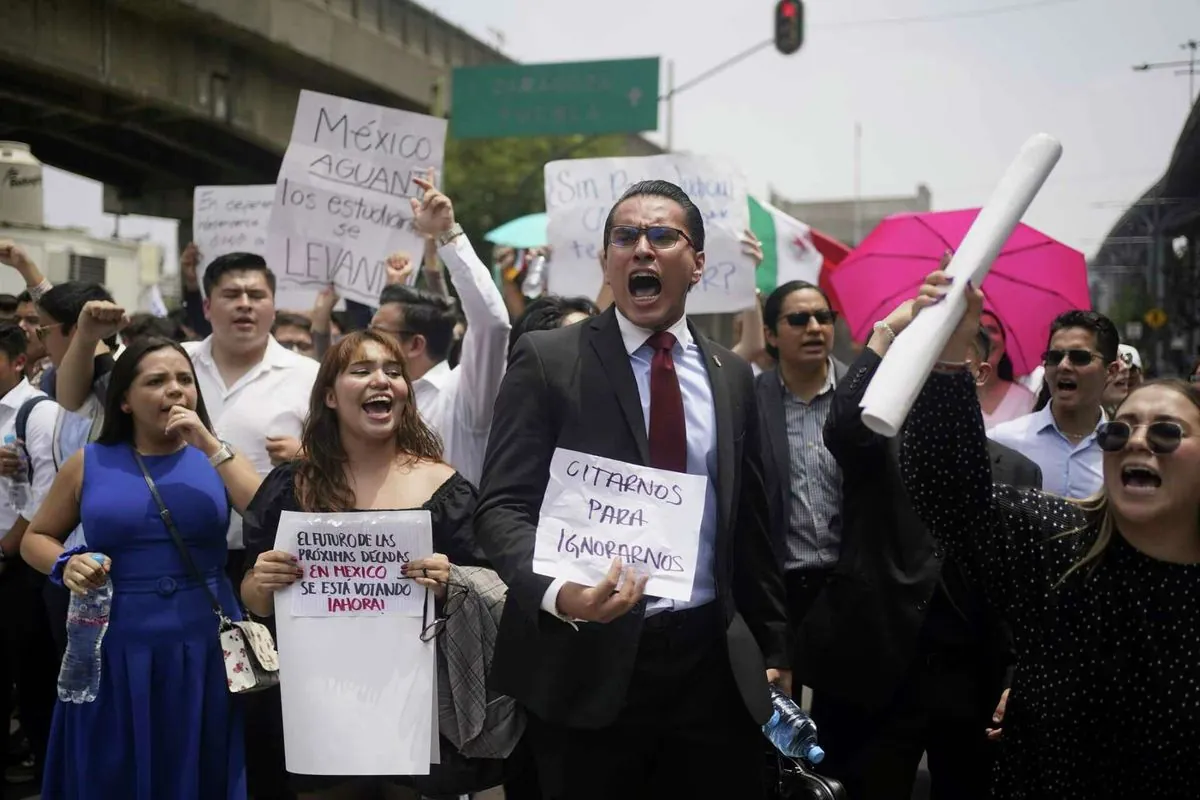Mexico Proposes Radical Overhaul: Electing All 7,000 Judges
Mexico's governing party pushes for nationwide judicial elections, aiming to combat corruption. The controversial proposal faces criticism and raises questions about implementation and effectiveness.

In a bold move to address perceived corruption within its judicial system, Mexico's governing party has proposed a sweeping reform that would see all 7,000 judges in the country elected by popular vote. This unprecedented proposal, which includes the election of Supreme Court justices, has sparked intense debate and raised numerous questions about its feasibility and potential consequences.
Andrés Manuel López Obrador, Mexico's outgoing president whose term ends on September 30, 2024, has been a vocal critic of the current judicial system. His administration argues that electing judges would make them more accountable to the public and easier to remove if found corrupt.
The proposed overhaul would significantly alter the current appointment process for judges. Presently, judges and court secretaries progress through the ranks based on periodic reviews and evaluations. While this system has faced criticism for cronyism and favoritism, the proposed alternative presents its own set of challenges.
Under the new proposal, candidates for judgeships would need only a law degree, decent grades, five years of undefined "judicial area experience," and a letter of recommendation. For Supreme Court positions, ten years of experience would be required. The selection process would involve a committee of experts narrowing down applicants, with some finalists being chosen by lottery.

The reform also includes several other significant changes:
- Creation of "faceless" judges for organized crime cases to protect their identities
- Establishment of a judicial disciplinary committee with broad investigative powers
- Reduction of Supreme Court justices from 11 to 9, with terms shortened from 15 to 12 years
Critics argue that the proposed system could lead to a politicization of the judiciary and raise questions about the qualifications of elected judges. The logistics of organizing nationwide judicial elections and the potential for special interest groups to influence campaigns are also concerns.
It's worth noting that Mexico's legal system, established in 1824, is based on civil law, unlike the common law system in the United States. The country's current constitution, enacted in 1917, guarantees judicial independence, which some fear could be compromised by this reform.
While some countries, like Switzerland and the United States, elect certain judges indirectly or at local levels, Mexico's proposal is unprecedented in its scope. Bolivia attempted a similar reform in 2009, but the process has been frozen due to challenges, including a high number of blank ballots cast by voters.
The implementation of this overhaul, if approved, would require significant changes to the current system. All existing judges would be dismissed and given severance pay, with the option to run as candidates in the new elections. This transition could lead to a steep learning curve for newly elected judges unfamiliar with specialized courtrooms and appeals processes.
Proponents of the reform argue that it would address the longstanding issues of corruption and inefficiency in Mexico's judicial system. However, critics point out that the main problem in Mexico's justice system is not corrupt judges dismissing cases, but rather the fact that over 90% of crimes never make it to court due to poorly trained and overwhelmed police and prosecutors.
As the proposal moves through the legislative process, having already passed the lower chamber of Congress, its fate remains uncertain. The potential impact on Mexico's judicial system and the broader implications for the country's democracy continue to be subjects of intense debate.


































